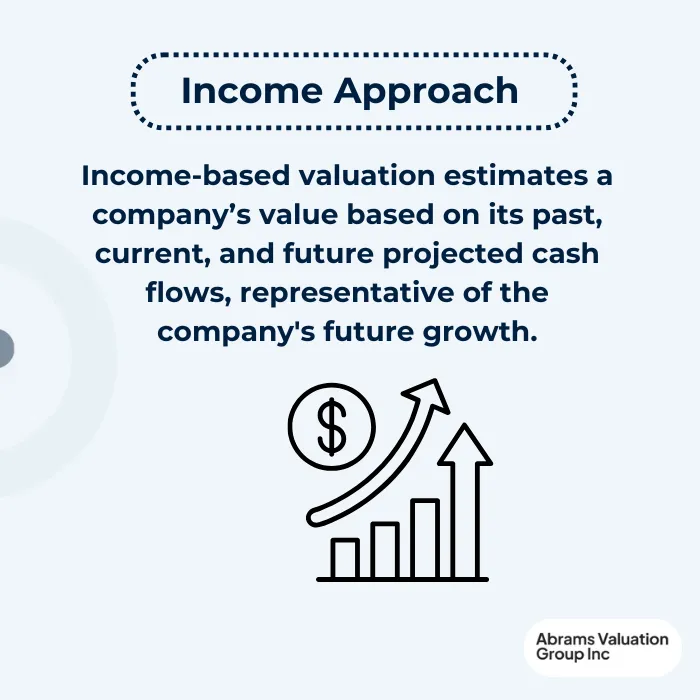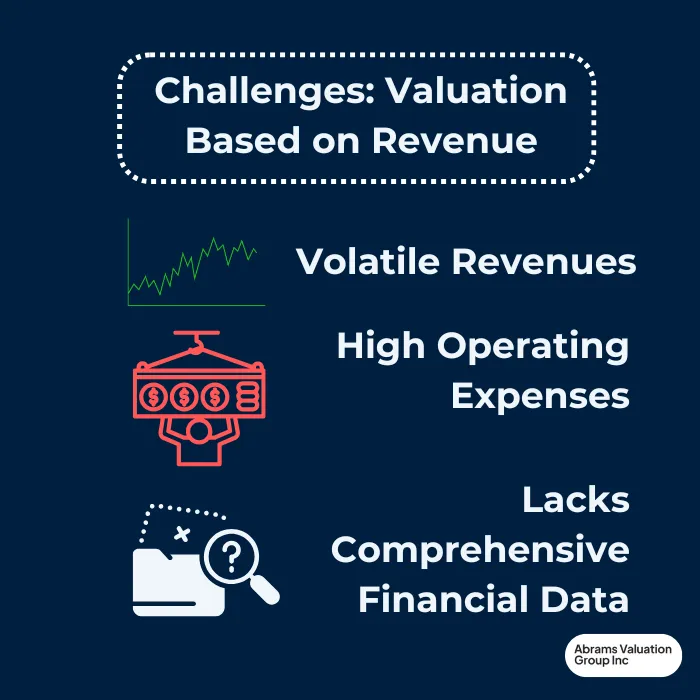Understanding Company Valuation Based on Revenue: A Practical Guide
Introduction to Valuation
Business valuation is a crucial process for determining the economic value of a company, essential for various purposes such as mergers and acquisitions, fundraising, and financial reporting. Business owners play a key role in selecting the most appropriate valuation method for their specific needs. It involves assessing the company’s financial performance, growth potential, and industry trends to estimate its current value.
Several business valuation methods exist, including the discounted cash flow method, times revenue method, and price to earnings ratio, each offering distinct strengths and applications. Business valuations are important for making informed decisions about a company’s value. Understanding these different methods and their appropriate use is vital for making informed decisions about a company’s value.
Revenue-Based Valuation
Revenue-based valuation is a popular method for estimating a company’s value, especially for businesses with high growth potential and unstable profits. Revenue-based valuation is particularly useful for valuing a business based on revenue, especially when other financial metrics are less reliable. This approach is a business-based method that relies on the company’s revenue and annual sales to derive an estimated value. The appropriate revenue multiple is determined by considering industry benchmarks, market trends, and the company’s financial performance.
Projected revenue and future revenues are also considered in these methods, especially for high-growth companies. Revenue-based valuation is often applied to a software company, where recurring revenue and future revenues are key drivers of value. It is particularly useful for businesses with recurring revenue streams, such as software companies or subscription-based services, where future revenue potential plays a significant role in valuation. It is important to analyze the business’s revenue in context with other financial metrics for a more accurate valuation.
Valuation Methods: Applying Discounted Cash Flow
The discounted cash flow method is a widely used valuation method that estimates a company’s value by discounting its future cash flows to their present value. The discounted cash flow method relies on accurate projections of business earnings and net income to estimate value. This method involves forecasting the company’s future cash flows, where future earnings and future profitability are critical factors in forecasting future cash flows, determining the discount rate, and calculating the present value of the cash flows.
The discounted cash flow method is useful for estimating the value of companies with stable cash flows and predictable growth prospects. However, it can be complex and requires accurate forecasting of future cash flows. Often, weighing this method logically along with other valuation methods and approaches can yield a much more accurate result than this single approach.
Industry Trends and Benchmarks
Industry trends and benchmarks play a crucial role in determining a company’s value. Companies operating in growth industries with high profit margins and strong growth prospects typically command higher revenue multiples. Utilizing industry benchmarks, such as the price-to-earnings ratio, helps estimate a company’s value relative to its peers, providing valuable context for valuation. Industry standards are also used to determine appropriate valuation multiples, such as EBITDA, and to assess a company’s value in comparison to industry peers. A thorough understanding of these trends and benchmarks is essential for making informed decisions about a company’s worth and positioning within its market.
Company-Specific Factors
Company-specific factors such as revenue growth, operating expenses, operating costs, goodwill and intangible assets significantly influence a company’s value. Businesses exhibiting strong revenue growth, low operating expenses, low operating costs, and valuable intangible assets generally command higher valuations. The adjusted revenue multiple method incorporates these factors to provide a more precise estimate of a company’s worth.
Book value is another important company-specific factor, especially when using valuation ratios like the price-to-book value (PBV) ratio, as it helps assess a company’s market valuation relative to its net asset value.
Therefore, understanding and carefully evaluating these company-specific elements is essential for conducting accurate and meaningful valuations.
Valuation Challenges
Valuation can be particularly challenging when a company experiences volatile revenues, high operating expenses, or lacks comprehensive financial data, making accurate forecasting of future cash flows difficult, as well as determining the actual value and company’s intrinsic worth. These challenges are compounded by the significant impact that the choice of valuation method and the determination of appropriate revenue multiples or discount rates have on the estimated value.
Fair value and business worth can also be difficult to assess, especially when tangible assets are significant or hard to value. Successfully addressing these issues requires a deep understanding of the company’s financial performance, industry trends, and the strengths and limitations of various valuation methods to ensure a more reliable and meaningful assessment of the company’s worth.
Best Practices for Valuation
Best practices for valuation involve using multiple valuation methods while carefully considering industry trends, benchmarks, and company-specific factors. It is essential to rely on accurate and reliable financial data, such as audited financial statements, to ensure a precise estimate of a company’s value. These best practices are crucial for business buyers and sellers to determine a fair purchase price and selling price during transactions.
The valuation process should be transparent, with clear disclosure of the methods and assumptions employed. Partner ownership considerations are also important during mergers, acquisitions, and ownership transitions. Additionally, regular updates to the valuation are necessary to reflect changes in the company’s financial performance, evolving industry trends, and shifting market conditions, thereby maintaining an up-to-date and meaningful assessment of the company’s worth. For public companies, the company’s market value and the company’s share price are key factors in the valuation process.
Conclusion
Business valuation is a complex process that requires a thorough understanding of a company’s financial performance, industry trends, and various valuation methods. The choice of valuation method depends on the company’s specific circumstances and the industry in which it operates, making it important to use multiple approaches to accurately estimate the company’s value.
Additionally, company-specific factors such as annual revenue growth and operating expenses can significantly influence the overall valuation. Best practices in valuation emphasize the use of accurate and reliable financial data, careful consideration of industry trends and benchmarks, and transparent disclosure of the methods and assumptions employed throughout the valuation process to ensure a precise and trustworthy assessment. Contact Abramas Valuation Group, Inc. for an expert company valuation done right.







